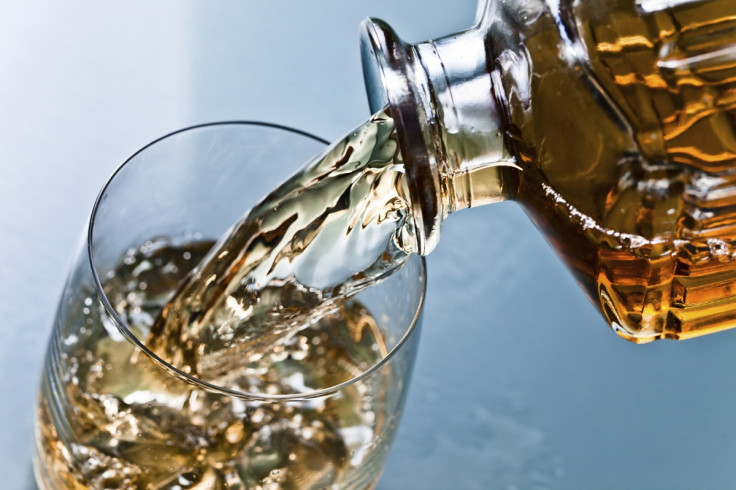The delicious mystery of why water and whisky work so well together finally solved by science
Your grandfather was right to put a drop of water in his Glenfiddich.

Adding a drop of water to whisky can make it taste a lot better – and it's all down to the behaviour of a molecule called 'guaiacol', scientists say.
When it's freshly distilled, whisky is usually around 70% ethanol by volume. It's then aged in barrels, where some of the alcohol evaporates. Then, before bottling, it's diluted further with water.
Whisky connoisseurs have known it for centuries, but now scientists have an explanation for why adding a little bit more water to whisky once it's out of the bottle enhances the taste.
At first sight it might seem puzzling. Water itself doesn't really have a taste, so why would adding a tiny bit of it change the taste of the whisky so much?
A study in the journal Scientific Reports finds that it's all down to the solubility of certain aromatic molecules in the whisky.
Much of the drink's characteristic taste is down to a particular type of molecule that can bind to both fatty and watery molecules. In contrast, most small molecules are much more soluble in either water or fatty liquids, but not both.
One such dual-character molecule in whisky is guaiacol. At lower ethanol concentrations guaiacol is most likely to be found at the surface of the liquid, contributing to the smell and taste of the drink. At higher concentrations, guaiacol interacts more tightly with ethanol and so it becomes buried down in the drink and contributes less to the taste.
The researchers used computer simulations to test the behaviour of guaiacol in different concentrations of water-ethanol mixes. Below about 45% guaiacol was free to contribute strongly to taste. Above about 59%, it would have a negligible contribution to taste as it was mostly bound to ethanol.
This research may have more relevance to whiskies from some regions than others, as their particular chemical characteristics and tastes vary from place to place.
"Many whiskies, especially those that are made on the Scottish island of Isley, have a typical smoky taste that develops when malted barley is smoked on peat fire. Chemically, the smoky flavour is attributed to phenols, and in particular guaiacol, which is much more common in Scottish whiskies than in American or Irish ones," the study authors, led by Björn Karlsson of Linnæus University, Sweden, write in the paper.
© Copyright IBTimes 2025. All rights reserved.






















